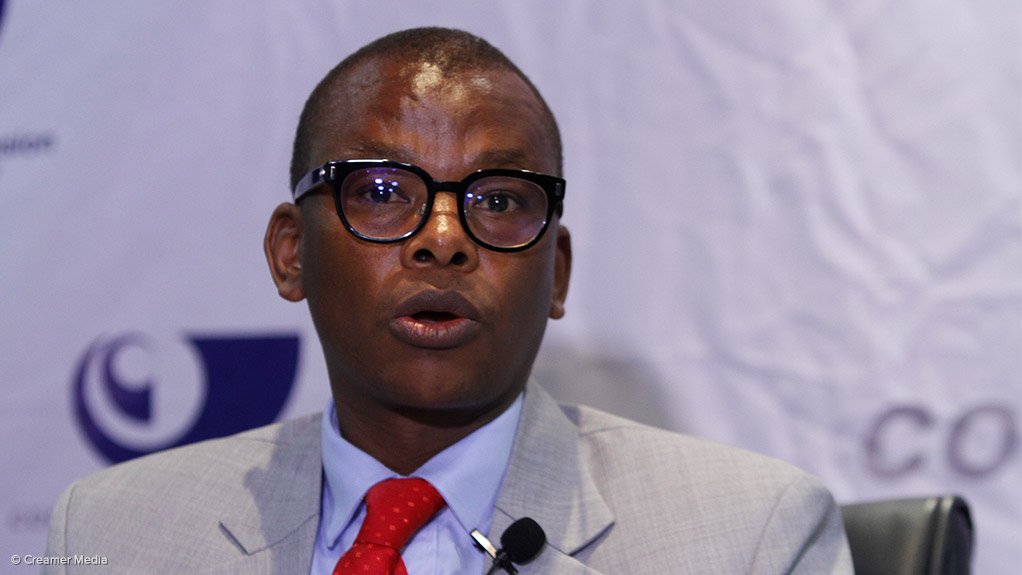Competition Commission considers future priorities as it celebrates its successes
As its celebrates it twentieth year, the Competition Commission – which itself has undergone internal transformation – has engendered much support in pursuing the transformation of the country’s economy; however, there is still much work to be done.
This was revealed during the commission’s dialogue with labour and business, entitled ‘Transforming the South African Economy’, in Pretoria, on Monday.
Competition Commissioner Tembinkosi Bonakele said the construction and cement industries was one area in which the commission had done a lot of work that resulted in quantifiable benefits for consumers in a more competitive market in the form of a bigger array of products and services.
With regard to addressing the monopoly of dominant industrial firms in the market and preventing these from blocking new entrants to the market, he indicated that the commission had achieved a “mixed” performance.
For example, he highlighted that in the instance of HIV drugs, multinationals were supplying these into the country at exorbitant prices. The commission initiated a case and managed to reach a settlement with “dramatic” results, wherein the companies agreed to license local manufacturers, and one such business became the largest multinational the country has produced in pharmaceuticals.
He further highlighted that, from about 2009, the commission had intensified efforts to address public interest concerns when reviewing proposed mergers.
Bonakele pointed out that the commission has, since, set various public interest conditions, especially concerning the protection of jobs.
Moreover, he noted that the commission had also ensured that there was local participation when dominant firms entered the market.
He cited Walmart as an example, stating that, when the multinational entered the South African market, there had been a lot of concern about the displacement of labour and local suppliers.
Walmart was, however, required to create capacity for local suppliers to feed into the Walmart value chain, which Bonakele enthused had been a notable success.
The commission had also focused on opening up the market for participants in the value chain in other industries in the same vein; for example, opening the automotive sector to small, medium-sized and microenterprises (SMMEs) and previously disadvantaged players.
Bonakele said South Africa’s automotive sector was uncharacteristic in that it was dominated by large companies, with the majority of aftersales being undertaken by these, which was not ideal.
Moving forward, Bonakele said the commission had to fast-track its work, as there would be no growth in the country if the economy was unsustainable and marginalised economically active citizens.
He emphasised that the commission had to use all the tools at its disposal to pursue this, with new tools having become available when the Competition Amendment Act was signed into law by President Cyril Ramaphosa in February.
The commission’s biggest area of focus, going forward, would be price fixing, because, while this was already a criminal offence, the system had not “condemned anyone to a prison term as yet”, he noted.
Another focus area would be to ensure the promotion of competition and SMME inclusivity in the market.
Moreover, Bonakele noted that the economy was entering a “dynamic and exciting phase”, with digital markets coming to the fore, and the commission would use the tools at its disposal to respond effectively to this.
He stressed that the supply of data was a priority and that the commission had been encouraged by the publication of the Policy on High Demand Spectrum, which is expected to result in lower data prices for consumers.
Bonakele emphasised that the commission wanted to see access for all South African citizens to the Internet, but in a sustainable manner that did not bankrupt telecommunications operators.
This sector was not properly regulated, but these new policies should be the impetus for a positive change, he said, adding, “While we are late to this, we are quite excited by where we are now.”
Bonakele also pointed to the need to be vigilant against ensuring that polices did not entrench government dominance in data. He also noted that, as experience has taught the commission, it must be cognisant of the amount of time it takes for regulatory decisions to be made and effected.
Work in the infrastructure arena will also entail looking at digital aspects, noted Bonakele, saying the commission would have to deal with issues of regulating entities such as ride-hailing services Uber and Taxify.
He noted that these disruptions were “inevitable” and often displaced people; therefore, through the creation of a level playing field, the commission had to ensure the transition did not leave people behind.
Meanwhile, Johannesburg Chamber of Commerce and Industry VP Shawn Thompson noted that the country’s economy had a dual structure of strong dominant firms and the emergence of small businesses. He highlighted the need for strong levers to create access to market for the latter.
He also called for the commission to look into the cost of development funding, stating that such funding was too high and was hampering small businesses.
Funding should focus on a return on investment and return on impact from both a government and private sector perspective, for example, small business growth and job creation, Thompson stated.
Black Management Forum president Andile Nomlala commented that there was a need for the government to ensure an enabling environment for emerging businesses to thrive.
Article Enquiry
Email Article
Save Article
Feedback
To advertise email advertising@creamermedia.co.za or click here
Press Office
Announcements
What's On
Subscribe to improve your user experience...
Option 1 (equivalent of R125 a month):
Receive a weekly copy of Creamer Media's Engineering News & Mining Weekly magazine
(print copy for those in South Africa and e-magazine for those outside of South Africa)
Receive daily email newsletters
Access to full search results
Access archive of magazine back copies
Access to Projects in Progress
Access to ONE Research Report of your choice in PDF format
Option 2 (equivalent of R375 a month):
All benefits from Option 1
PLUS
Access to Creamer Media's Research Channel Africa for ALL Research Reports, in PDF format, on various industrial and mining sectors
including Electricity; Water; Energy Transition; Hydrogen; Roads, Rail and Ports; Coal; Gold; Platinum; Battery Metals; etc.
Already a subscriber?
Forgotten your password?
Receive weekly copy of Creamer Media's Engineering News & Mining Weekly magazine (print copy for those in South Africa and e-magazine for those outside of South Africa)
➕
Recieve daily email newsletters
➕
Access to full search results
➕
Access archive of magazine back copies
➕
Access to Projects in Progress
➕
Access to ONE Research Report of your choice in PDF format
RESEARCH CHANNEL AFRICA
R4500 (equivalent of R375 a month)
SUBSCRIBEAll benefits from Option 1
➕
Access to Creamer Media's Research Channel Africa for ALL Research Reports on various industrial and mining sectors, in PDF format, including on:
Electricity
➕
Water
➕
Energy Transition
➕
Hydrogen
➕
Roads, Rail and Ports
➕
Coal
➕
Gold
➕
Platinum
➕
Battery Metals
➕
etc.
Receive all benefits from Option 1 or Option 2 delivered to numerous people at your company
➕
Multiple User names and Passwords for simultaneous log-ins
➕
Intranet integration access to all in your organisation



















